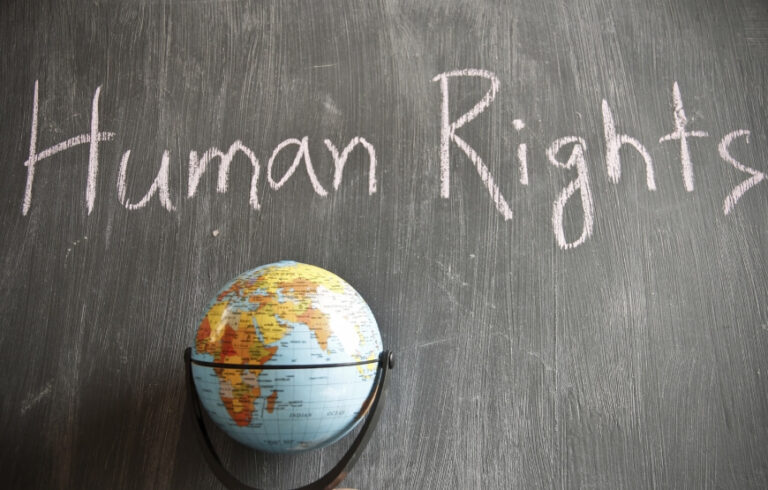
August 16, 2023
Challenges and Prospects of International Human Rights Law in Modern Times
In an increasingly interconnected and globalized world, the protection of human rights has become a crucial aspect of international relations and law. International Human Rights Law (IHRL) aims to safeguard the inherent dignity and rights of individuals worldwide.
However, despite its noble intentions, IHRL faces countless challenges in the modern era. This article explores the key obstacles that IHRL encounters and outlines potential avenues for progress in ensuring a brighter future for human rights protection.
Challenges:-
State Sovereignty and Non-Interference: One of the significant challenges is the principle of state sovereignty and non-interference in internal affairs. Many nations assert their right to govern their internal matters without external interference, it hinders the enforcement of human rights standards. This poses difficulties in addressing human rights abuses, particularly when governments are uncooperative or complicit (involved in illegal activity) in violations.
Enforcement and Compliance: The effectiveness of IHRL depends on the willingness of states to comply with its provisions. In despite of having number of treaties and conventions, some countries prioritize national interests over international obligations, leading to selective implementation and enforcement, thus undermining the universality of human rights.
Emerging Technologies and Digital Rights: The rapid advancement of technology has introduced new human rights challenges. Digital rights, privacy, and online freedom of expression have become crucial aspects of modern human rights concerns. Governments and corporations’ increasing control over information and surveillance technologies pose risks to individuals’ rights to privacy and freedom of expression.
Armed Conflicts and Humanitarian Crises: Armed conflicts and humanitarian crises continue to be major hurdles for human rights protection. Civilian populations often bear the brunt of conflicts, facing violence, displacement, and lack of access to basic necessities. The enforcement of IHRL becomes difficult in such situations, where political interests and security concerns often take precedence over human rights.
Prospects: –
Strengthening International Cooperation: Enhancing collaboration among nations and international organizations is vital to tackle human rights issues collectively. Diplomatic efforts, multilateral dialogues, and cooperation can foster better understanding and alignment with IHRL principles.
Emphasizing Accountability and Transitional Justice: Promoting accountability for human rights violations is essential in establishing a culture of respect for human rights. Strengthening transitional justice mechanisms can help address historical injustices and create avenues for healing.
Using Technology for Human Rights: Technology can be a powerful tool for advancing human rights, including raising awareness, documenting violations, and empowering activists. Embracing digital innovation while safeguarding privacy and data protection can pave the way for progress in this area.
Empowering Civil Society and Human Rights Defenders: Supporting and protecting human rights defenders and civil society organizations is crucial. They play a pivotal role in advocating for human rights, exposing abuses, and holding governments accountable.
Conclusion: –
The challenges facing International Human Rights Law in modern times are significant, but not insurmountable. By addressing the obstacles and harnessing the potential prospects, the international community can reinforce the protection of human rights and uphold the values of dignity, equality, and justice for all individuals across the globe. A collective commitment to respect and promote human rights is essential for creating a more just and humane world for future generations.
FOLLOW US ON INSTAGRAM: @thesupremerights
OUR WEBSITE: www.thesupremerights.com

